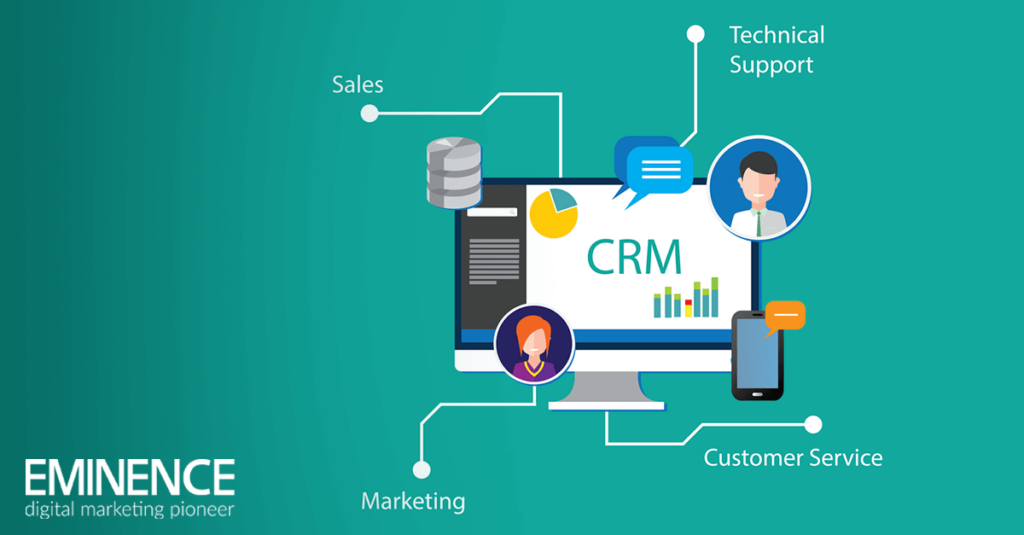
Leveraging CRM for Better Business Intelligence
In today’s data-driven world, businesses are constantly seeking ways to gain a competitive edge. One powerful tool that can provide this advantage is a Customer Relationship Management (CRM) system. When leveraged correctly, a CRM system can be a significant source of business intelligence (BI), offering valuable insights that drive strategic decision-making. This article explores how businesses can leverage CRM systems for better business intelligence.
Understanding Business Intelligence
Business Intelligence refers to the technologies, processes, and practices used to collect, integrate, analyze, and present business information. The goal is to support better business decision-making by providing actionable insights derived from data. CRM systems, which store a wealth of customer and sales data, are crucial sources of this intelligence.
Key Benefits of CRM-Driven Business Intelligence
- Enhanced Customer Insights
- Customer Behavior Analysis: CRM systems capture detailed customer interactions, purchase histories, preferences, and feedback. Analyzing this data helps businesses understand customer behavior and trends.
- Segmentation and Targeting: By segmenting customers based on various criteria (e.g., demographics, buying behavior), businesses can tailor their marketing efforts for better engagement and conversion rates.
- Improved Sales Performance
- Sales Forecasting: CRM systems provide historical sales data that can be analyzed to predict future sales trends and revenue, enabling more accurate sales forecasting.
- Performance Tracking: Track sales team performance through metrics such as conversion rates, deal closure rates, and sales cycle lengths. This helps identify areas for improvement and best practices.
- Optimized Marketing Strategies
- Campaign Effectiveness: CRM systems track the performance of marketing campaigns, providing insights into what works and what doesn’t. This data can be used to optimize future campaigns.
- Customer Journey Mapping: Analyze the customer journey from initial contact to purchase and beyond. Understanding this journey helps in creating targeted and effective marketing strategies.
- Enhanced Customer Service
- Issue Resolution: Track and analyze customer service interactions to identify common issues and bottlenecks. This leads to faster resolution times and improved customer satisfaction.
- Feedback Analysis: Collect and analyze customer feedback to understand their needs and preferences better. This information can be used to enhance product offerings and services.
- Strategic Decision-Making
- Data-Driven Decisions: Use insights derived from CRM data to inform strategic decisions across all business functions, from product development to market expansion.
- Risk Management: Identify potential risks and opportunities by analyzing customer and market data. This proactive approach helps in mitigating risks and capitalizing on opportunities.
How to Leverage CRM for Better Business Intelligence
- Integrate CRM with BI Tools
- Seamless Integration: Integrate your CRM system with BI tools and other data sources to create a comprehensive data ecosystem. This enables more robust data analysis and reporting.
- Unified Data View: A unified view of data from various sources provides a holistic understanding of business performance and customer behavior.
- Utilize Advanced Analytics
- Predictive Analytics: Use predictive analytics to forecast future trends based on historical data. This helps in proactive decision-making and strategic planning.
- Prescriptive Analytics: Leverage prescriptive analytics to identify the best course of action based on data insights. This approach goes beyond prediction to recommend specific actions.
- Implement Custom Dashboards and Reports
- Tailored Dashboards: Create custom dashboards that display key performance indicators (KPIs) and metrics relevant to different business functions. This ensures that stakeholders have access to the information they need.
- Automated Reports: Set up automated reports that provide regular updates on important metrics. This saves time and ensures that decision-makers are always informed.
- Ensure Data Quality and Accuracy
- Data Cleansing: Regularly clean and update your CRM data to maintain its accuracy and reliability. Inaccurate data can lead to incorrect insights and poor decision-making.
- Data Validation: Implement data validation rules to ensure that the information entered into the CRM is correct and consistent.
- Train Your Team
- User Training: Provide comprehensive training to your team on how to use the CRM system and BI tools effectively. A well-trained team can better leverage data for insights.
- Ongoing Education: Offer continuous education and resources to keep your team updated on the latest BI techniques and best practices.
Challenges and Solutions
- Data Integration Issues
- Solution: Invest in robust integration platforms that ensure seamless data flow between your CRM and other systems.
- Data Overload
- Solution: Focus on collecting and analyzing the most relevant data. Use filters and segmentation to manage and make sense of large datasets.
- Resistance to Change
- Solution: Foster a data-driven culture within your organization. Highlight the benefits of CRM-driven BI and provide support during the transition.
Conclusion
Leveraging CRM systems for business intelligence provides businesses with a wealth of insights that drive strategic decisions and improve overall performance. By integrating CRM with BI tools, utilizing advanced analytics, implementing custom dashboards, ensuring data quality, and training your team, you can unlock the full potential of your CRM system. Embracing CRM-driven business intelligence is not just about collecting data; it’s about transforming that data into actionable insights that propel your business forward.